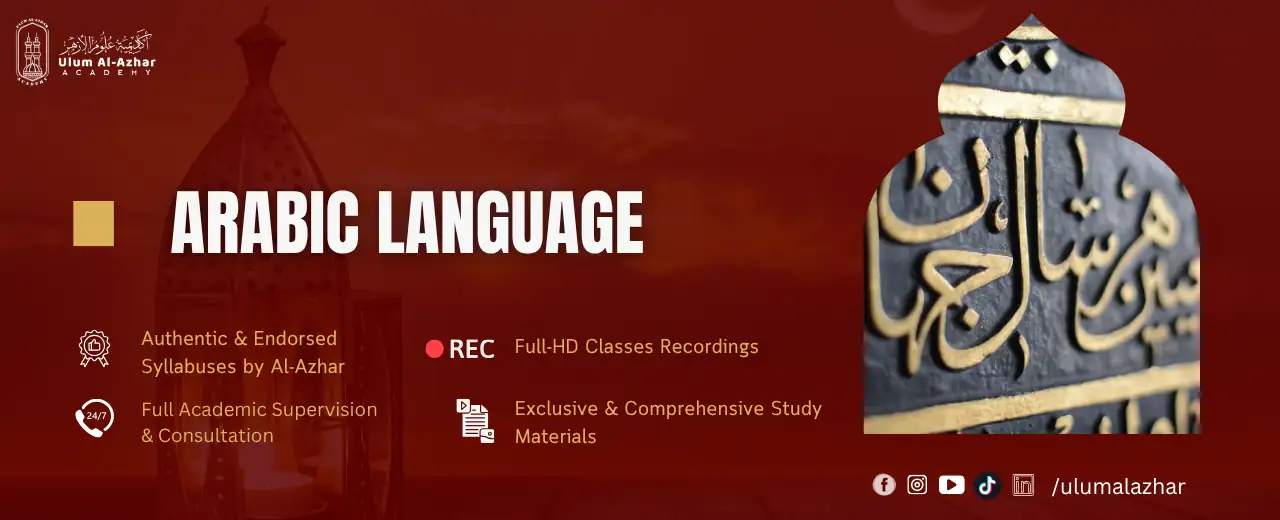
Can You Read the Quran in English? Rules and Limitations
What is the best way to take the benefits of the divine message of the Quran? If you don’t speak Arabic can you read the Quran in English? Quran as the final revelation from Allah, preserved in its original Arabic form. As the religion continues to grow globally, non-native Arabic speakers look forward to learning and understanding the deep teachings of Islam without requiring Arabic language proficiency. This article explores scholars’ view of the translation of the Quran in English, addressing its purpose, limitations, and benefits for spiritual development and comprehension.

Purpose of Qur’an Translations
While the Quran is preserved perfectly in Arabic, not everyone can understand the subtleties and linguistic beauty of the original text. Can you read the Quran in English? Yes, but in this case you are reading the translation not Allah words.
Allah revealed His Noble Book in the Arabic language, so it is an Arabic Quran. Its meanings are translated into other languages to explain and teach the message, allowing speakers of non-Arabic languages to understand Allah’s words and benefit from the rulings of His Book. Translation is essentially an interpretation, meaning it clarifies for those who do not know Arabic the meaning of Allah’s words, for example:
“Allah! There is no deity except Him, the Ever-Living, the Sustainer of existence” [Ayat Al-Kursi Surah Al-Baqarah: 255]
“Forbidden to you are dead animals, blood, and the flesh of swine” [Al-Ma’idah: 3]
In this way, the meanings and rulings are made clear in their language so they can understand them. Language itself is not the Quran; it is merely an interpretation and translation. The Quran is what is recited in Arabic, as Allah revealed it.
So, the primary purpose of translating the Quran into English is to make the divine message accessible to non-Arabic speakers. Translations allow readers to comprehend the meaning of Allah’s words. They serve as a bridge for understanding, spiritual reflection, and moral guidance, though they are not a substitute for the original Arabic so it helps Muslims strengthen their faith by clarifying the principles of Islam.
The next step in your Islamic learning journey is here: free consultation with Al-Azhar-certified Sheikhs from Egypt.
Can You Read the Quran in English for Guidance?
What about guidance?: Can you read the Quran in English for guidance? The answer is yes, but with certain limitations. The Quran in English can provide guidance in understanding Islam’s core teachings, ethics, and moral lessons. However, non-Arabic Muslims must learn the Quranic wording in order to recite it in prayer and outside of prayer in Arabic.
So translation does not replace the original Arabic text in religious rituals such as Salah (prayer), recitation, or memorization (Hifz).
For example, It is obligatory for a Muslim to memorize Surah Al-Fatihah, because the prayer is not valid without it. As narrated in Sahih al-Bukhari and Sahih Muslim: the Messenger of Allah ﷺ said:
“There is no prayer for one who does not recite the Opening of the Book (Al-Fatihah).” — Al-Bukhari and Muslim
In another hadith: “When you stand for prayer, say Takbir, then recite whatever portion of the Quran is easy for you.”
From this, the majority of jurists have derived that it is obligatory to recite the Quran in Arabic during prayer, and that the recitation is not valid except in Arabic. This is because if the Quran were translated, it would not be the Quran itself, but rather an interpretation of the Quran.

Difference Between Translation and Original Arabic Text
Allah the Exalted said: “An Arabic Quran” [Yusuf: 2], and He said: “In a clear Arabic tongue” [Ash-Shu‘ara: 195].
The Quran is a miracle in both its wording and its meaning. If either is altered, it disrupts its structure and it is no longer the Quran, nor anything like it; it would only become an interpretation of the Quran. Even if the translation were as eloquent as the Quran, it would not replicate it, for the challenge of producing a chapter like it remains unmet.
If a person cannot recite properly in Arabic, they are obliged to learn it. If they do not learn it despite being able, their prayer is invalid. If they are unable to learn or fear missing the prayer time, they should recite what they know from Al-Fatihah, repeating it seven times if needed.
If they do not know any part of Al-Fatihah but have memorized other portions of the Quran, they should recite from those portions as much as possible; nothing else suffices. As narrated by Abu Dawood from Rifa’ah ibn Rafi’: the Prophet ﷺ said: “When you stand for prayer, if you have the Quran with you, recite from it; otherwise, praise Allah, glorify Him, and say Takbir.” This is more appropriate because it is of the same nature as recitation, and it must be read according to the number of verses if possible.
If a person knows nothing from the Quran and cannot learn it before the prayer time expires, they are obliged to say: Subhan Allah (Glory be to Allah), Alhamdulillah (Praise be to Allah), La ilaha illallah (There is no deity but Allah), Allahu Akbar (Allah is the Greatest), La hawla wa la quwwata illa billah (There is no power nor strength except through Allah).
As narrated by Abu Dawood: a man came to the Prophet (peace be upon him) and said: “I cannot memorize any portion of the Quran; teach me something that will suffice me.” The Prophet ﷺ said: “Say: Subhan Allah, Alhamdulillah, La ilaha illallah, Allahu Akbar, La hawla wa la quwwata illa billah, for this is for Allah. What else should you do?” He then taught: “Say: O Allah, forgive me, have mercy on me, provide for me, guide me, and grant me well-being.”
So, the Arabic Quran is considered the literal word of Allah, and every word carries divine weight and exact meanings. On the other hand, an English translation is an interpretation of those meanings. This distinction answers the question: Can you read the Quran in English? Yes, but it is important to recognize that reading a translation does not equate to reading the Quran itself.

Who Can Benefit from English Translations
Up to the last point, we have been able to answer the question: can you read the Quran in English? So, who can benefit from the English translations of the Noble Quran? The answer depends on the reader’s circumstances. English translations benefit:
Non-Arabic speakers: Those who are new to Islam or live in non-Arabic speaking countries can gain insights into Islamic teachings.
New Muslims: Converts often use English translations to understand the Quran before learning Arabic.
Students and researchers: Scholars studying Islamic theology, law, and ethics may rely on translations for comparative studies.
Teachers and educators: English translations help instructors convey Quranic principles in classrooms worldwide.
Learning Arabic with Ulum Al-Azhar Academy
While reading the Quran in English is permissible and beneficial for understanding, the ultimate goal for every Muslim is to read it in the original Arabic. Ulum Al-Azhar Academy provides structured various programs to teach Arabic:
Quranic Arabic Course: Learn & practice the language of Quran with qualified Arab tutors from Al-Azhar Al-Sharif, Egypt in Online Quranic Arabic Course.
Master Fusha Arabic: Learn It with Native Arabs in 24 Hours
Arabic Online Classes for Kids: Learning Arabic is so much fun! Arabic Online Classes for Kids is an exciting program where we make learning Arabic easy and enjoyable for children with Al-Azhar Al-Shariff Teachers.
Master Arabic Studies – Ultimate Arabic Communication Training: Practical program as we break down the complexities of the Arabic language into easy-to-follow steps & Daily conversations.
Discover your Islamic learning journey, by choosing your suitable Arabic course under the guidance of Al-Azhar-certified Sheikhs from Egypt.

Conclusion
Scholars affirm that the answer to Can you read the Quran in English? The answer is yes, but with limitations. English translations are valuable for understanding, reflection, and guidance. They help non-Arabic speakers connect with Islamic teachings, explore moral and spiritual lessons, and strengthen their faith. However, translations do not replace the original Arabic in worship, memorization, or legal contexts. Combining English comprehension with Arabic learning ensures that one can experience the Quran in both its spiritual and linguistic depth.
Ready for your Islamic learning journey? It all starts with free consultation and our Al-Azhar-certified Sheikhs in Egypt.
FAQs
Can you read the Quran in English for Salah?
No. the hadiths of the prophet ﷺ affirm that the Quran must be recited in Arabic during prayers. English translations are for understanding only.
Can you read the Quran in English to memorize it?
You can use English translations to understand meanings, but memorization must be in Arabic for authenticity.
Can you read the Quran in English alone for guidance?
Yes. English translations provide guidance, but they do not replace the original text for ritual or legal purposes.
Can you read the Quran in English alongside Arabic?
Yes. Many learners read both simultaneously to improve understanding and pronunciation while gaining spiritual insight.
Tag:can i read the quran in english if i don't know arabic, can we read quran in english transliteration, can you read the Quran in English, is listening to quran same as reading, is reading the quran in english the same as arabic, quran transliteration in english with arabic, reading quran in english reward, reward for reading quran hadith
